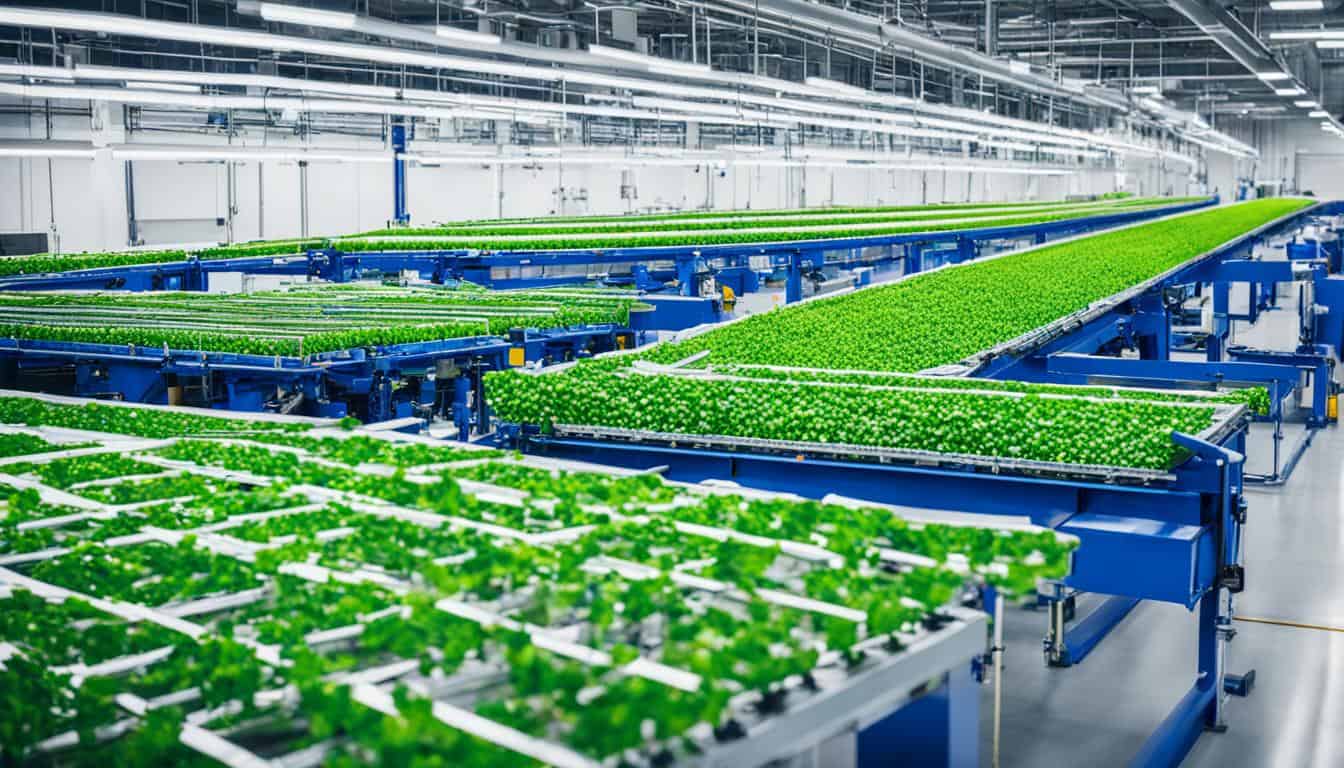As we grapple with the challenges of food waste, it becomes increasingly evident that consumers play a crucial role in mitigating this issue. By adopting specific waste reduction strategies, individuals can help work toward the United Nations’ Sustainable Development Goals aiming to halve food loss and waste by 2030. Comprehending consumer behavior and the factors that influence it are essential in designing targeted interventions and policies to reduce waste at the consumer level. Let’s explore the prevailing dynamics of consumer behavior and discuss waste reduction strategies to help combat food waste.
Key Takeaways
- Consumers play a vital role in achieving waste reduction goals
- Understanding consumer behavior and the factors that influence it is essential to reducing food waste
- Analyze waste reduction goals and strategies, focusing on actions at the consumer level
- Explore the motivation-opportunity-ability (MOA) framework in driving behavior change
- Discuss the environmental and economic impacts of food waste, and the importance of consumers’ contribution to waste reduction
- Practical, evidence-based waste reduction strategies and interventions
Understanding the Impacts of Food Waste on Society
The consequences of wasted food extend beyond the obvious loss of valuable food resources. Wasted food has significant and far-reaching effects on both the environment and the economy, which ultimately impact our well-being and the health of our planet. In this section, we will delve deeper into the environmental toll of wasted resources and the correlation between economic losses and food insecurity.
The Environmental Toll of Wasted Resources
Food waste has dire environmental impacts, with considerable amounts of freshwater, cropland, and fertilizers being used to produce food that is never consumed. In the United States, wasted food accounts for a substantial portion of the nation’s freshwater use and energy resources.
Food Logistics suggests that consumers can play a key role in waste reduction by demanding corporations to take responsibility for reducing waste throughout the supply chain.
Additionally, when we consider the broader food supply chain and global food system, the consequences are even more evident. For instance, when food waste decomposes in landfills, it releases methane, a potent greenhouse gas that contributes to climate change.
With the increasing global population and the escalating demand on our planet’s resources, it is crucial to address these patterns of waste. Society cannot afford to continue with these unsustainable practices, which threaten our well-being and the health of our planet.
Economic Losses and Food Insecurity Correlation
Food waste also represents a significant economic cost, with billions of dollars’ worth of food being thrown away annually at the retail and consumer levels in the United States. This wasted food translates to hundreds of dollars per capita and a considerable percentage of average annual food spending. These economic losses exacerbate pressing issues such as food insecurity and undernourishment, particularly among vulnerable populations.
| Annual Food Waste Statistics | United States |
|---|---|
| Wasted Food Value | $161 billion |
| Per Capita Food Waste Cost | $500 |
| Average Annual Food Spending | $3,500 |
To combat these challenges, national strategies have been set to reduce consumer food waste, including a goal to cut per capita food waste by 50% by the year 2030. Addressing consumer food waste is an essential step toward improving the sustainability of our food system and alleviating the burdens of food insecurity and undernourishment.
Motivation, Opportunity, and Ability: Framework for Consumer Behavior
The framework comprising motivation, opportunity, and ability (MOA) plays a significant role in understanding the conscious and unconscious consumer decisions that lead to food waste behavior. These behaviors around food waste are influenced by numerous factors at the societal level, impacting individual and collective practices related to food procurement, consumption, and disposal.
Analyzing Consumer Decisions in Food Waste
Identifying key components in consumer decisions helps us understand their actions that eventually contribute to food waste. The MOA framework offers a lens through which we can analyze various factors that shape consumers’ choices concerning food. This framework is particularly valuable when properly designed interventions are aimed at reducing food waste.
Motivation is a driving force that pushes consumers to reduce food waste, and can be based on environmental concerns, personal values in food consumption, and the desire to save money.
Opportunity refers to the circumstances and external influences that facilitate consumers’ ability to reduce food waste, such as societal impacts on food waste and cultural influences.
Ability encompasses the access to resources, knowledge, and skills that empower consumers to reduce food waste effectively.
Through this framework, we can dissect the complex consumer behavior regarding food waste and tailor interventions and strategies that resonate with their unique motivations, opportunities, and abilities.
Integrating Societal, Cultural, and Personal Influences
Food waste behavior is not one-dimensional. Instead, it is shaped by various drivers that involve a blend of cultural, personal, political, geographic, biological, and economic factors. These drivers encompass a wide range of influences, with sociodemographic variables often proving to be insufficient or poor predictors of behavior due to significant cultural variation at every socioeconomic level.
For instance, consumer attitudes are influenced by cultural norms, which could lead to different habits and food waste patterns among various ethnic and social groups. Neighborhood contexts also play a part in shaping consumer behavior, with differences in access to healthy and affordable foods impacting food waste reduction behavior.
Ultimately, understanding these drivers and their interactions is critical for designing effective interventions to reduce consumer food waste. By integrating societal, cultural, and personal influences, stakeholders can create a more comprehensive and impactful approach to mitigate the detrimental effects of food waste on our environment and communities.
Consumer Knowledge and Attitudes Towards Reducing Food Waste
Consumers’ knowledge and attitudes play a significant role in determining the amount of food wasted in households. Education, awareness, and an improved understanding of the consequences of food waste are crucial in shaping these attitudes and encouraging responsible household food waste practices. Consumer perceptions and priorities vary greatly, with motivations for reducing waste often including saving money and setting a good example for their children.
Understanding the factors influencing consumer attitudes towards waste reduction is essential for developing targeted interventions that encourage better practices in food management and waste reduction. Several common factors influence how consumers perceive and relate to the issue of food waste, such as:
- General awareness of environmental impacts
- Financial considerations
- Personal values and beliefs
- Perceived ease of implementing waste reduction practices
- Social norms and pressures
To effectively tackle the issue of food waste, it is essential to consider the unique mixture of elements that shape consumer behavior and leverage them to create targeted interventions for reducing waste. The following table outlines the different aspects of consumer behavior that interventions should take into account:
| Aspect | Description | Intervention Focus |
|---|---|---|
| Knowledge and Awareness | Understanding the consequences of food waste and the necessary steps to reduce it | Education and information campaigns |
| Financial Considerations | Desire to save money and optimize household budgets | Incentives and cost-saving measures |
| Personal Values and Beliefs | Individual morals, ethics, and priorities that influence waste reduction practices | Appealing to intrinsic motivations and belief systems |
| Perceived Ease and Feasibility | Level of accessibility and practicality of implementing waste reduction actions | Hands-on demonstrations, tools, and resources to simplify the process |
| Social Norms and Pressures | Influence of societal expectations and peer behavior on waste reduction practices | Redefining social norms and promoting positive group influences |
In conclusion, recognizing the factors that shape consumer knowledge and attitudes is key to developing effective strategies for reducing household food waste. By focusing on these factors and designing targeted interventions, it is possible to empower consumers in their behavior to reduce waste and contribute to a more sustainable food system.
Strategies for Consumers to Minimize Food Waste

Adopting effective shopping strategies, meal planning, and food storage practices are crucial for minimizing waste and reducing our overall environmental impact. By consciously changing our habits and making informed choices, we can contribute to waste reduction both at home and beyond. Let’s dive into some techniques that can help us minimize waste and make the most of our food resources.
Effective Shopping and Meal Planning Techniques
Implementing smart shopping strategies and meal planning is an essential step for consumers aiming to reduce food waste. By carefully planning our food purchases, we can avoid overbuying and ultimately discarding food. Here are some tips to help with this:
- Create a shopping list based on your meal plan for the week, considering portion sizes and the number of servings required.
- Shop with a purpose and stay committed to your list, resisting the temptation of impulse buys and promotions.
- Buy in bulk only if you are sure that you can consume the items before they spoil or expire.
- Be mindful of expiration dates and prioritize purchasing items with longer shelf lives.
Maximizing Food Shelf Life Through Proper Storage
Proper food storage plays a critical role in minimizing waste and maximizing food shelf life. By implementing sound food storage practices, we can reduce the need to discard food due to spoilage and contribute to waste reduction at the household level. Here are some best practices for proper food storage:
- Store perishable foods, such as fruits and vegetables, in separate compartments or drawers to avoid cross-contamination.
- Use airtight containers or vacuum seal bags to preserve the freshness of food items and minimize exposure to air.
- Follow storage guidelines and temperature recommendations for different types of food.
- Freeze food items that you won’t consume in the immediate future to prolong their usability.
- Regularly check your refrigerator, pantry, and cupboards for items close to their expiration dates and plan meals accordingly to use them up.
By incorporating these waste reduction strategies, we can make a sizeable impact on our food waste footprint. Not only will these steps contribute to waste reduction goals and promote food safety, but they will also help save money and resources by prolonging the usability of the food we purchase.
Consumer Role in Waste Reduction

Consumers play a crucial role in waste reduction, influencing not only household waste but also the overall food system. By understanding the multiple drivers behind food waste and actively engaging in targeted behaviors such as proper food management and making conscious choices, consumers can significantly contribute to national waste reduction goals. In this section, we will explore how individual actions can create a ripple effect on waste management and waste food reduction at the household level.
One way consumers can make a difference in waste reduction is by making mindful decisions during shopping, meal planning, and food storage. Through effective shopping strategies and proper meal planning, consumers can minimize waste and reduce their impact on the environment. In addition, by maximizing food shelf life through proper storage techniques, individuals can directly contribute to waste reduction at the household level.
Another essential aspect of the consumer role in waste reduction is waste management. Consumers can not only recycle and compost their waste but also opt for eco-friendly and biodegradable products to minimize their environmental footprint. Participating in local waste management programs and learning about proper waste disposal can significantly enhance their ability to waste less.
Moreover, spreading awareness about food waste and its impacts can encourage more individuals to take action. Sharing useful tips and best practices with friends and family can inspire others to reduce their food waste, leading to a broader collective effort in waste reduction.
Lastly, consumers can support businesses and policies that advocate for sustainable practices and waste reduction. By engaging with brands that prioritize eco-friendly products and waste management, consumers can help drive demand for more sustainable choices and contribute to waste reduction on a larger scale.
The consumer role in waste reduction is not limited to the household. The actions and choices of individuals can create a lasting impact on waste management, waste food reduction, and the overall food system. By engaging in targeted behaviors and making conscious choices, consumers can contribute significantly to national waste reduction goals and promote a more sustainable future.
Behavioral Interventions and Consumer Response

Interventions aimed at reducing food waste have broad potential to influence consumer food waste behavior. However, the evidence supporting their effectiveness is varied, pointing to the need for further research and tailored solutions. Promising approaches often involve education and redefining social norms, highlighting the pairing of motivation with opportunity and ability for sustained behavioral change. Such interventions should be adaptable and consider the complexity of the drivers involved.
Evidence-Based Approaches to Curtail Food Waste
Evidence-based interventions for food waste reduction can provide insights into the factors that contribute to changes in consumer food waste practices. By examining data from successful campaigns, these interventions can be adjusted to reflect the unique needs of different populations and cultural contexts. Strategies such as promoting proper food storage methods, meal planning, and conscious shopping habits can contribute to improved consumer response and the overall success of food waste reduction strategies.
The Role of Education and Outreach Programs
Education and outreach programs are fundamental to promoting the adoption of food waste reduction strategies. These programs aim to inspire consumers to assimilate food waste reduction into their daily lives through:
- Altering attitudes
- Increasing agency
- Re-evaluating social norms
By raising awareness, empowering consumers, and providing the necessary knowledge and tools, education and outreach programs foster a better understanding of consumers’ food waste behavior. Ultimately, these initiatives enable individuals to take control of their food waste practices and contribute to global efforts to reduce food waste and its associated detrimental effects on society and the environment.
Implementing a Systems Approach at the Consumer Level

Reducing consumer food waste requires a holistic systems approach that encompasses various contributing factors, including production, marketing, and consumption practices. This dynamic interaction of societal norms, marketing tactics, and individual behaviors can be leveraged to create effective strategies to address the root causes of food waste and facilitate collaboration among all stakeholders.
A systems approach to addressing food waste should focus on:
- Understanding consumer behavior regarding food
- Identifying waste reduction goals
- Developing actionable recommendations for food waste reduction
By examining consumer behavior at different stages of the food supply chain, it becomes possible to identify opportunities for improvement and design targeted interventions that drive positive change.
For instance, capturing data on food storage patterns, shopping habits, and portion sizes can inform evidence-based, actionable recommendations to minimize waste and maximize the nutritional value of purchased food items.
Collaboration among key stakeholders – including food producers, retailers, policymakers, and consumers – is crucial for ensuring the success of systems-based strategies aimed at reducing food waste. Share best practices, jointly develop guidelines for waste reduction, and establish joint waste reduction goals to foster a collective commitment to driving impactful change.
Local and national policy interventions and educational campaigns can reinforce the alignment of goals and support the implementation of a systems approach.
A systems approach at the consumer level necessitates the understanding of various factors contributing to food waste and the collaboration from all stakeholders. Ultimately, this method allows for the design of effective strategies that address the root causes of food waste and help us achieve our waste reduction goals.
Technological Innovations and Their Impact on Waste Reduction
Several technological innovations have the potential to address and reduce food waste in a meaningful way. Technologies that focus on streamlining the food supply chain, improving waste management policies, and enhancing food waste reduction tools can greatly impact this global issue. These innovations are promising, but further investigation and evaluation are required to understand their efficacy in the long term.
One example of a food supply chain innovation is food preservation technology, which can extend the shelf life of perishable goods, therefore reducing the amount wasted. This can be particularly beneficial for households struggling with planning and storage, ultimately contributing to a decrease in waste.
Improvements in refrigeration technologies also play a significant role in waste reduction. Smart refrigeration systems, for example, can monitor food freshness and send alerts to consumers when items are about to expire, prompting the use of those items before they spoil. This benefits not only homes but also businesses across the food supply chain.
Another innovative solution is the development of antimicrobial coatings for food packaging. These coatings can inhibit the growth of bacteria and fungi, prolonging the freshness of food and reducing spoilage. By implementing such technologies, consumers and businesses alike can ensure that more food is consumed rather than discarded.
While technological innovations offer promising avenues for waste reduction, it is essential to remain vigilant of their long-term efficacy and continuously explore new solutions. By combining these advances with consumer education and behavior change initiatives, the global impact of food waste can be significantly mitigated.
Gauging the Effectiveness of Food Waste Policies
Evaluating the effectiveness of food waste policies is crucial for reducing waste on both national and local levels. By analyzing insights from various strategies and initiatives, we can better understand which approaches are successful and which areas require improvement. Ensuring that consumer responses are considered when adapting strategies is also important for achieving meaningful reductions in food waste.
Insights from National Strategies and Local Initiatives
Many countries and localities have implemented policies and programs aimed at reducing food waste. For instance, the United States has established a national strategy to reduce food waste by 50% by the year 2030. Local governments have also implemented their own waste reduction initiatives. Comparative assessments of these policies can unveil successful strategies that can be adopted across regions and implemented at the consumer level.
Effective food waste policies need to be adaptable, taking into consideration factors like cultural diversity and varying socioeconomic backgrounds. Lessons learned from these strategies can be applied to the ongoing development of waste reduction initiatives and policies, ultimately contributing to a substantial reduction of household food waste and increasing efforts to reduce food waste at the consumer level.
Analyzing the Shift in Consumer Behavior Post-Implementation
Monitoring consumer behavior after implementing food waste reduction strategies is essential for evaluating the effectiveness of those policies. Post-implementation analysis can highlight areas where these policies have been successful, as well as those that require improvement. By tracking the behavior changes regarding food waste, we can adapt and refine future policies and strategies aimed at reducing food waste.
Moreover, consumer education and public awareness campaigns play a crucial role in driving a consumer behavior shift towards waste reduction. As part of these campaigns, it is necessary to provide information on effective food storage, meal planning, and proper disposal methods to ensure long-lasting changes at the household level.
| Food Waste Policy | Targeted Consumer Behavior | Key Insights and Successes |
|---|---|---|
| National Strategy to Reduce Food Waste | Reducing household waste and encouraging responsible consumption | Greater consumer awareness, increased emphasis on food waste reduction strategies |
| Local Waste Reduction Initiatives | Community-level composting, food sharing, and donation programs | Increased community engagement, reduced waste sent to landfills |
| Consumer Education and Outreach Programs | Improved food storage, meal planning, and waste disposal practices | Long-term behavior change, household food waste reduction |
Continued monitoring of consumer behavior and ongoing evaluation of food waste policies are vital for ensuring the long-term success of waste reduction strategies. Both national and local efforts, in conjunction with consumer-level actions, can contribute to achieving global waste reduction goals, ultimately benefiting the environment and society as a whole.
Conclusion on Consumer Role In Waste Reduction
The importance of food cannot be overstated. From its impact on the environment to its central role in our daily lives, food waste is a crucial issue that needs our attention. Consumers play an essential role in achieving waste reduction goals, and understanding the various factors influencing their behavior towards food waste is key to designing effective strategies. Examining food waste literature, we can learn about evidence-based interventions and waste reduction behaviors.
Moreover, not only is waste reduction at the consumer level important, but it is also crucial to consider the implications of waste across the entire food supply chain. By focusing on sustainable food systems and fostering a healthier planet, we can support the overarching goals of waste reduction.
As consumers, it is our responsibility to take action and be conscious of our choices. Let us strive to continue developing strategies that resonate with us and contribute to a positive change in our relationship with food and the environment.
FAQ on Waste Management
Q: What is the role of consumers in waste reduction at the household level?
A: Consumers play a crucial role in waste reduction at the household level by being mindful of their consumption and disposal habits. They can contribute to reducing waste by properly managing food storage, minimizing over-purchasing, and utilizing leftovers efficiently.
Q: How does food waste at the consumer level impact the environment?
A: Food waste at the consumer level has significant environmental implications, contributing to increased greenhouse gas emissions and placing strain on natural resources used in food production. By reducing food waste, consumers can help mitigate these environmental impacts.
Q: What are effective strategies to reduce food waste at the household level?
A: Effective strategies to reduce food waste at the household level include meal planning, proper storage of perishable items, composting organic waste, and being mindful of portion sizes. These strategies can help minimize the amount of waste generated at home.
Q: Is there a national strategy to reduce food waste that involves consumer participation?
A: Yes, some countries have implemented national strategies to reduce food waste, which often involve consumer participation through educational campaigns, policy initiatives, and incentives to promote responsible consumption and waste reduction practices.
Q: How does reducing food waste at the consumer level contribute to food security?
A: Reducing food waste at the consumer level can contribute to food security by ensuring that edible food reaches those in need. Minimizing waste also helps conserve resources and supports a more sustainable food production and distribution system.
Q: What role do food date labels play in reducing food waste at the consumer level?
A: Food date labels can influence consumer behavior and contribute to food waste reduction by providing guidance on the freshness and safety of products. Clear and accurate date labeling can help consumers make informed decisions about when to use or dispose of food items.
Q: How does food waste in restaurants impact waste at the consumer level?
A: Food waste in restaurants can indirectly impact waste at the consumer level by influencing consumer perceptions and behaviors. Efforts to reduce waste in food service establishments can contribute to a broader culture of waste reduction and awareness among consumers.
Q: What is the impact of a systems approach to reducing consumer food waste compared to individual action?
A: A systems approach to reducing consumer food waste considers broader factors such as supply chain inefficiencies and policy frameworks. This approach complements individual action by addressing systemic issues that may lead to waste, leading to more comprehensive and sustainable waste reduction outcomes.
Q: What evidence supports actionable recommendations for food waste reduction related to food consumption?
A: A systematic review of household food waste offers valuable evidence to support actionable recommendations for food waste reduction related to food consumption. This review provides insights into the drivers of food waste at the household level and strategies to motivate consumers to minimize waste.
Q: How can consumers be motivated to take action in reducing food waste at the household level?
A: Consumers can be motivated to take action in reducing food waste at the household level through awareness campaigns, educational initiatives, and the provision of practical tips for waste reduction. Positive messaging and tangible benefits of waste reduction can help encourage consumer participation.





Leave a Reply